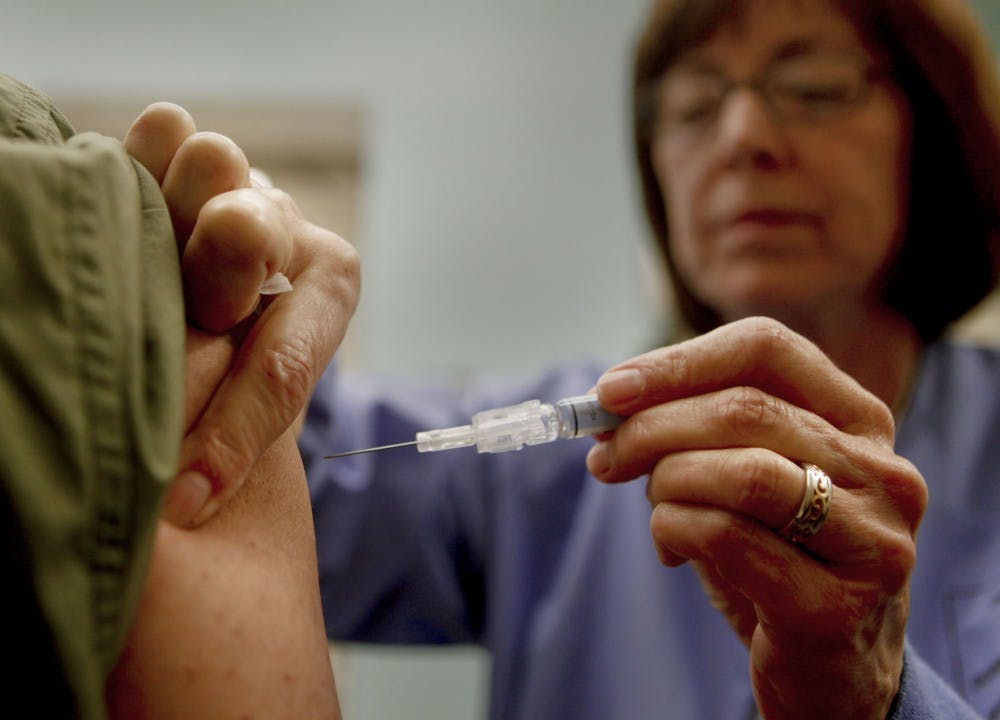It’s that time of year again — student’s noses are running, throats are scratchy and everyone is trying to finish projects and prepare for finals.
The good news is that the semester is almost over, but the looming doom of the common cold is still on the horizon.
In Maricopa County, the flu season starts in October but doesn’t peak until the end of December to the beginning of January, according to community health data from the county.
An ASU professor, a nursing student who worked for Health Services and a naturopathic doctor have health advice for students to navigate through these next few weeks.
Because students live and study in close proximity to each other, the flu and the common cold can spread quickly, said Heather Healy, a graduate student studying advanced nursing practice and a former nurse practitioner for ASU Health Services.
One way Healy said students can avoid getting sick is by frequently washing their hands and using hand sanitizer.
Healy said because of the cooling temperatures in the Valley, people often forget to drink their water, but it is just as important now as it is in the hot summer months.
“In the winter you still need a lot of water and the more hydrated you are with water, the easier it is for your body to fight off infection and keep you well,” Healy said.
If you do get a fever, she said it’s important to continue drinking lots of water to help the body cool down. And, even though it can seem hard to slow down from all of the busyness of school, taking a break and allowing the body to rest will help set students get over their sickness faster.
Healy recommends taking Tylenol for fevers and headaches and Ibuprofen or Aleve for body aches.
“If you’ve got a headache and you have a fever, take one of each,” Healy said.
It also won’t hurt to get a flu shot. Healy said if you end up getting the flu you will be out of class anywhere from five to 12 days.
According to the World Health Organization, severe influenza affects three to five million people and kills up to 650,000 every year worldwide.
“The flu shot is very, very valuable to prevent you from getting the flu, or if you did it’s going to decrease the time that you have to be away from work or away from class,” Healy said.
ASU Health Services, Walgreens and CVS are a few places that offer flu vaccines near the Tempe campus.
Dawn Augusta, a registered nurse and integrative health professor at ASU, said the problem she sees the most is stress.
Anxiety is one of the top “inflictions” that Americans suffer, and the student population often has anxiety due to the many demands of college, according to Augusta.
“Stress makes us really prone to illness,” Augusta said.
Her advice to students is to take one minute of “soft-belly breathing” every day.
She said breathwork can change a person’s physiology and combat stress because it takes a person out of “fight or flight” mode. When the body is at rest, she said it can allow for tissue repair and boost the immune system.
“Meditation is medicine,” Augusta said.
The Center for Mindfulness, Compassion and Resilience at ASU offers Koru Mindfulness classes to help teach students mindfulness techniques, Augusta said.
If you go to work or class while sick, it can prolong the sickness and recovery time, Augusta said.
She said if someone is feeling sick and feverish, it is important to seek help from a healthcare professional.
Naturopathic Dr. Sayre Limburg from Journey Natural Medicine in Chandler treats patients through natural remedies focusing on healing the mind and the body.
Limburg said her clinic treats the flu through the immune system.
Unlike conventional medicine, Limburg focuses on treatments that include diet, exercise, lifestyle changes, herbs, acupuncture, chiropractic care and homeopathy. She will prescribe pharmaceuticals if it becomes necessary.
“I connect the mind and body in order to find optimal health for patients, not necessarily (only) treating a condition,” Limburg said. “I treat the whole person.”
Instead of traditional flu and cold medicines, Limburg finds unique alternatives that serve as treatment.
Once already sick, she recommends “warming socks.” First, get your feet warm with a hot shower. Second, put wet, cold socks on. Lastly, put a pair of dry wool socks over the wet socks. In the morning, Limburg said the symptoms will be gone.
Another measure Limburg said students can take is by drinking a natural remedy every day called fire cider — a mixture of apple cider vinegar, white onion, horseradish, honey and cayenne. Fire cider can alleviate flu and cold symptoms and work as a preventative measure.
“Everybody is so different that no treatment plan is the same for any individual,” Limburg said.
Reach the reporter at hwegner@asu.edu and follow @wegnerhelena on Twitter.
Like The State Press on Facebook and follow @statepress on Twitter.




